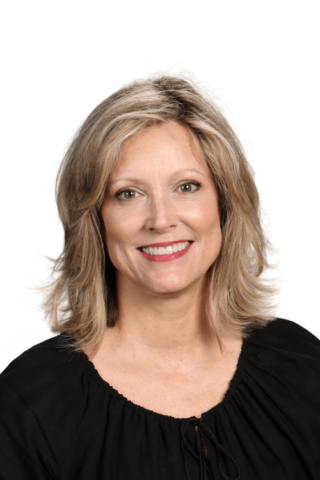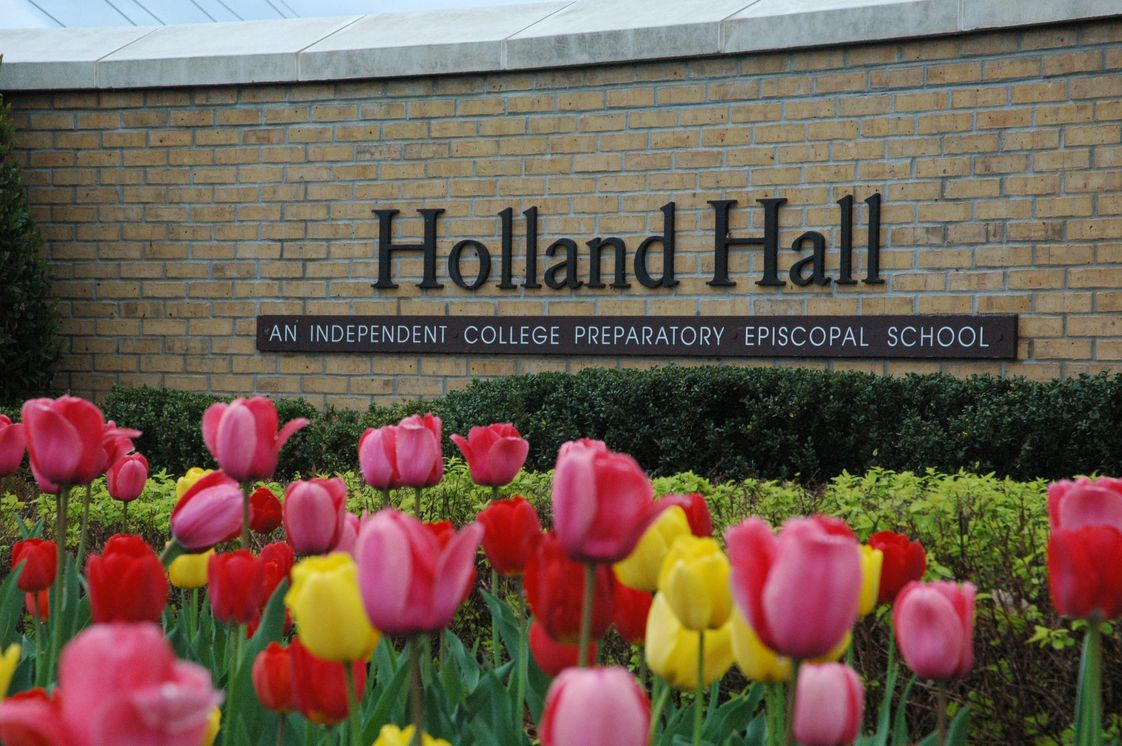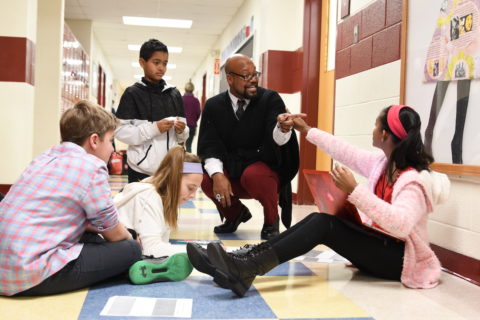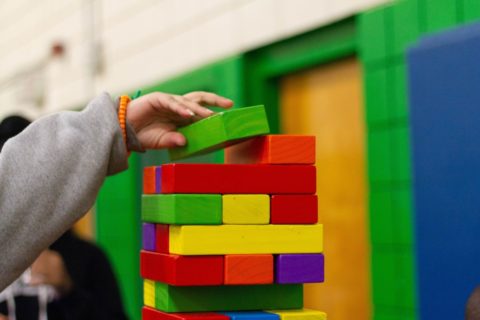In November 2022, we interviewed Gina Johnson, Learning Specialist, Program Director for Learning Support K-12, and Director of Kistler-Gilliland Center for the Advancement of Learning at Holland Hall School in Tulsa, Oklahoma. Gina has been in education for over 30 years and has partnered with the CTTL for the past two years. In this month’s The Bridge, Gina sits down for an honest conversation about how her school is implementing and how faculty is adjusting to three new initiatives: MBE, Belonging and Competency-based education.
CTTL: What was your introduction to Mind, Brain, and Education Science (MBE)?
GJ: My initial introduction is probably very much like Glenn’s [Whitman] in that we have been connected to All Kinds of Minds since the early 1990s. And, at one point Holland Hall was actually a regional training site for the Schools Attuned to All Kinds of Minds program. So, I kind of look at that as our launching place. We were training our faculty and school faculties around us for many years with the Teaching All Kinds of Minds program. Once Covid-19 hit, we were looking for a way to continue, but decided to take that moment to pause and explore what our next steps were going to be. So, I started checking out what everybody else was doing and had a lot of respect for the work that Glenn Whitman has done over the years at his school and came across the CTTL. Once I took several days to look over [the programming], to look at your micro-courses, to order the Neuroteach book immediately, I knew it was the right next step for us.
CTTL: In your position, how have you conveyed the value of MBE to your fellow school leaders, teachers, and parents who are in the beginning of this journey or new to your school community?

GJ: Well, MBE – just as a concept – resonates very well with us because of all the work we’ve done in the past. We’ve asked a lot of our teachers this year, because we’ve started three big initiatives – MBE being the foundational thing that we’re doing. We are reaching out to parents, we’re pulling threads through from our MBE work and passing those things along to our parents. So, with feedback, we did a parent session just recently on how to provide feedback to your student at home. And, just trying to pull some of the ideas and strategies around feedback and what’s important about feedback and helping to equip and empower our parents to facilitate student learning at home. We kind of embedded within that some information about learned helplessness and how that plays out with some students and how we need to recognize it and work around it and reset that mindset for our kids. Covid-19 contributed a lot to that, so we’re unlearning some things when it comes to how we learn, particularly in the middle school. So, we are trying to onboard our parents as much as possible.
We will be starting an MBE library section very soon. I’m working with our librarians. We will be doing that in all three branches, and that will be accessible to not only our faculty, but to parents as well. They will have plenty of resources to investigate on their own. A very important part of our work with the CTTL this year is that we included a parent workshop.
The other branch of all this is that we are uniquely positioned in Tulsa in that we are the only independent school in our part of the country. We feel a lot of responsibility in that role, and we want to demonstrate leadership to our kids. We want to be leaders in our community, not just in our school community, but in the Tulsa community. I’m hoping that we’ll be able to branch out and do more in our region of the country because we have done quite a bit of that in the past. So that’s part of our DNA, and I would like to channel our MBE work into [regional outreach] as well.
CTTL: Can you elaborate on a few of the goals for your teachers and students this year and how you are using MBE to reach those goals?
GJ: Let me tell you the other two big initiatives that are taking place right now because we’re working very hard to blend these three things together. We’re working on competency-based learning (CBL) with a lot of emphasis on feedback, MBE, and DIB [diversity, inclusion, and belonging]. We have those three things going pretty strong at the same time. The challenge is blending the work, so these three things don’t live in siloes, so that it really makes sense to everybody in the community. That’s a work in progress. There are three of us here that are working closely together to show where those connections are, and our perspective is MBE is the foundational piece and CBL and DIB function within that framework – that’s our approach. Everything ties back to our MBE work.
We had our faculty read the Neuroteach book. Then, we purchased all 12 micro-courses for our middle school faculty. We customized how we blended those two things together. We were rolling out three courses at a time in a certain order and combining those with certain chapters of Neuroteach, and then debriefing. We did debrief with our middle school faculty four times, pulling forward the really important threads that are most important for our faculty: metacognition, feedback, thinking hard, struggle. In the middle of that – those debriefs and having conversations with the faculty – we were trying to pull out and help our teachers find places where they could start working with implementing some of these major concepts from that work.
It was a little new to some of our newer faculty. The bigger shift for us — as it turns out — was this idea that we’re still focused on the learner and how they learn, we still want to understand those unique profiles, but we shifted to the focus being on the teaching and making that our primary lens. So, looking at the impact that we have on our students and the learning that happens in the classroom and being able to own that and make adjustments, helping each other to see it through an MBE lens. We did have all of our middle school teachers writing S.M.A.R.T goals and one goal had to be an MBE goal this year. That’s probably going to be the case for all three of our branches – primary, middle, and upper – going forward. I’m working with the director of teaching and learning who’s leading the CBL work, and we’re trying to make sure that our competencies reflect MBE language.
CTTL: What are some of the MBE concepts and strategies that your teachers are excited to apply in the classroom?
GJ: Our teachers have really taken to all the different ways we can use reflection and metacognition with our students. We’re trying to embed it into our advisory curriculum. Our students all have advisors, and the groups meet with their advisors every morning. They’re using a lot of reflection and metacognitive activities in their lessons in the classrooms, which does something interesting that our teachers have a hard time with. We have a hard time giving ourselves permission to do less. In an independent school like ours – and like yours – rigor is important and that has always meant ‘more’. And, pulling back and giving ourselves permission to not be driven by content is a lesson that we are learning, and we are in struggle with that right now. But, it’s OK. This year is going to be the year of struggle in learning how to pull back and view our content differently and spend more time where more time needs to be spent.
Feedback takes a lot of time, so using feedback well is something our teachers are very interested in. We started a new comment writing system. It’s kind of come to life through our MBE work. We’re implementing it for the first time this fall. Again, trying to filter all of those components through an MBE lens so that the language lines up and we are looking at, and putting the focus on, learning behaviors and less on grades. And that’s a hard thing in schools like ours, too. We’re trying to demonstrate in a real way in real time that we are more interested in how that student is truly learning than we are in how they are able to pull off a grade.
Interleaving as a strategy has been something that teachers are very open to trying. We’re driving home this idea of less is more and doing what we do better requires that you let go of that pressure to fill your class time with content and carve out time and space for students to practice some of the strategies that are important in MBE work.
CTTL: Are you giving students MBE learning strategies directly?
GJ: Yes, teachers are teaching the kids how to learn better. And, not assuming that our students know these things when they come into seventh grade science, for example, or sixth grade language arts. If you’re requiring the student to execute certain skillsets or certain strategies, then you are teaching it directly, modeling it, monitoring it, showing examples of it, and carving out time and space for it.
CTTL: What type of impact have you observed in teachers and students?
GJ: I think the teachers love it. The teachers recognize very quickly the value of it once they get past that initial struggle, as I mentioned with doing all of the content and all of the other things, but we value the real true learning – the durable learning. Teachers love the strategies and they are fully persuaded that it’s what our kids need. The students appreciate the time in class to actually practice the things they need to know how to do, but they don’t appreciate the struggle – the hard thinking. And that’s part of the learning curve. We’re going to ask you to do the things that are harder and take more time, and we’re going to have to build up stamina for that.
CTTL: What does success look like in the next three to five years?
GJ: Our challenge is to figure out a seamless, efficient way to continue to onboard new faculty. It will be a combination of everyone will read Neuroteach to start with, and we will purchase micro-courses for new faculty and roll them out as we feel they can be digested. We’re sending folks to the [Science of Teaching and School Leadership] Academy in the summer as well.
We know that this work will continue; we know that we’re committed. I don’t know quite how it’s going to look going forward just yet.




